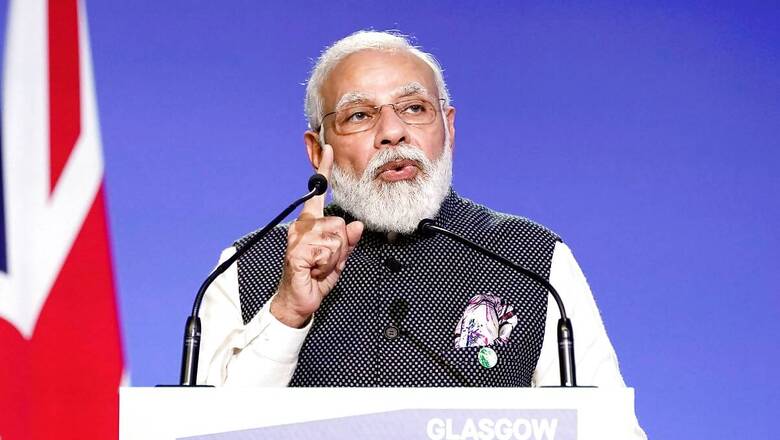
views
The stage is set for the G20 Leaders’ Summit tomorrow. Representatives of the world’s biggest economies will gather in New Delhi on the weekend for a crucial meeting. It will also be the last big chance of the 20 nations, responsible for 80% of emissions, to send a strong message of climate action before they meet at COP28 in Dubai.
India under Prime Minister Narendra Modi has already submitted its revised climate action plan with a Net-Zero target of 2070 and commitment to achieve 50% cumulative electric power installed capacity from non-fossil fuels by 2030. It is now trying to get countries to agree to phase down all fossil fuels, not just coal.
Despite the Indian presidency’s efforts to achieve ambitious outcomes, the G20 climate ministerial talks in July ended without any consensus on enhancing emission reduction targets. But as India enters the last leg of its Presidency, it will look to achieve some agreement among the world’s powerful economies on enhanced climate action before they head out for COP28.
VOICE OF THE GLOBAL SOUTH
Officials say climate change will feature in a packed agenda, but how much of it will make it to the Leaders’ Declaration remains to be seen. Climate finance and just energy transition for developing countries are key priorities. Any agreement on discussions to phase down all fossil fuels would consolidate India’s leadership pitch.
Prime Minister Narendra Modi has strongly batted for India’s leadership in the Global South, highlighting how climate change is a “shared reality” and that the ‘Global South’ would be affected disproportionately. In an interview to Moneycontrol, he said the member nations should come together and focus on positive actions to combat climate change, instead of dwelling on restrictions, criticism, and blame.
CALL FOR CLIMATE FINANCE
Finance remains a key priority. Annual investments in climate action need to go up by more than $2.4 trillion annually by 2030 say experts. The G20 has an opportunity to flex its financial muscle to move trillions in investment required to support developing countries in their energy transition.
The issue of debt restructuring for vulnerable economies was discussed early this week — a topic India expects to be an important part of discussions at COP28.
“It will be worrisome if there is no real and meaningful progress made on finance at the G20. The markets need strong signals to move in the right direction. When countries sign on to a deal, it is the strongest signal for markets to move in that direction,” said Vaibhav Chaturvedi, Fellow, Council on Energy, Environment and Water (CEEW).
TARGET TO TRIPLE RENEWABLES BY 2030
The upcoming COP28 agenda is focussed on pushing major economies to target deals on tripling renewables by 2030 and raising new levels of climate finance. But the renewables goal can only become a success if it comes with a financial package to ensure it can be achievable for developing countries. The G20 can offer that support if it commits to an ambitious deal.
India’s installed capacity of solar energy went up 20-fold, and it is among the top four nations in the world in terms of wind energy, but it needs more public and private finance to scale it up. India could also push for a global green development agreement including climate finance, besides Lifestyle for the Environment (LiFE), circular economy, accelerating progress on sustainable development goals, energy transitions and energy security, a report by think-tank Strategic Perspectives.
FOSSIL FUEL PHASE DOWN
India is leading a push to get countries to agree to a phase down of unabated fossil fuels, not just coal. However, there are push backs by countries such as Saudi Arabia. Member nations have continued to dispute the definition of abatement. China is said to be negotiating to delete reference to the 2009 G20 commitment to phase out inefficient fossil fuel subsidies.
Experts say absence of any such commitment in the final Leaders’ Statement may lead to backsliding on coal phase down that was agreed at the Bali summit last year. In fact, coal has been largely absent from the talks so far despite G20 being home to 93% of the world’s operating coal capacity. Experts have urged G20 leaders to set a clear timeline to end public support for fossil fuels.
“India has already demonstrated leadership with bold and ambitious targets. It now has a unique opportunity to influence other G20 nations to advance a sustainable, just, affordable, inclusive and clean energy transition. The Indian presidency must aim to get the world back on track to limit global warming below 1.5°C as promised by countries under the Paris Agreement,” said Sanjay Vashist, Director, Climate Action Network South Asia (CANSA).




















Comments
0 comment